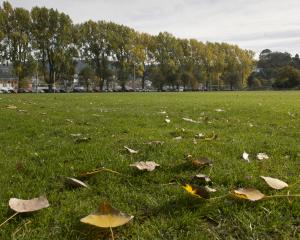
The current advice for New Zealanders with type 2 diabetes is to walk at least 30 minutes a day, but no particular time of day is suggested.
The new research, undertaken by Dr Andrew Reynolds, as part of his recent Otago PhD thesis, suggests that people managing type 2 diabetes should walk after meals to gain the greatest blood sugar-lowering benefits.
Post-meal blood sugar levels throughout the day dropped an average of 12% when the participants walked for 10 minutes after meals instead of walking at any time.
Most of this effect came from the ''highly significant 22% reduction in blood sugar'' when walking after evening meals, which were the most carbohydrate heavy, and were followed by the most sedentary time, he said.
Dr Reynolds, an assistant research fellow in the Otago human nutrition department, acknowledged that New Zealand faced an epidemic of type 2 diabetes, and said the findings were ''pretty encouraging'' and could help to ''break up'' sedentary behaviour.
Corresponding author Prof Jim Mann said post-meal glucose was regarded as an important target in managing type 2 diabetes, given its independent contribution to overall blood sugar control and cardiovascular risk.
Prof Mann, and colleagues Dr Reynolds, Dr Bernard Venn and Associate Prof Sheila Williams, wrote that post-meal physical activity ''may avoid the need for an increased total insulin dose or additional mealtime insulin injections that might otherwise have been prescribed to lower glucose levels after eating''.
The research findings suggested current guidelines should be amended to specify post-meal activity, particularly when meals contained a substantial amount of carbohydrate, the researchers said.
The researchers had earlier prescribed walking to 41 Dunedin patients with type 2 diabetes.
The patients - fitted with accelerometers to measure physical activity and blood sugar measuring devices - walked for 30 minutes a day, or for 10 minutes after main meals.
The findings have just been published in international journal Diabetologia.












